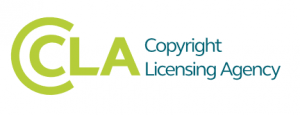CLA licence update
By Hazel M Ingrey, on 10 December 2019
 The Copyright Licensing Agency (CLA) Higher Education licence enables staff at UCL to digitise or photocopy readings for teaching purposes.
The Copyright Licensing Agency (CLA) Higher Education licence enables staff at UCL to digitise or photocopy readings for teaching purposes.
It does not cover all published material, so there are some limits to be aware of. Full details of these limits and how the TLS team checks your readings can be found on the Course Readings webpage.
Every three years the licence is re-negotiated with the help of the UUK and Guild HE Copyright Negotiation and Advisory Committee (CNAC). The new licence period is 2019-22 and in this round there were no major changes. One new benefit has been that negotiations with RROs in Germany, Belgium and the Netherlands resulted in these country’s materials being brought into the scanning repertoire. Another new, useful feature is that CLA copies may be made for administrative purposes that are not readings on a named module, for example UCL staff training other UCL staff. These copies must still adhere to the usual limits but don’t need to be reported.
The licence also allows some photocopying of readings with similar limits to digitising. Photocopying data is not collected and reported; instead UCL is subject to occasional photocopying data collection surveys.
At UCL the administration of the CLA licence is handled by the library. The TLS team copyright checks readings to ensure they fall under the CLA licence terms, before processing PDFs or photocopies into a copyright compliant scan, which is recorded and reported to the CLA annually. To take advantage of this service please look at the Course Readings webpage. If readings aren’t recorded through the library they are not covered by the CLA licence.
In the year 2018-19 UCL reported in excess of 6,500 digitised readings, which were delivered to students through the relevant module’s online reading list.
There is already a great deal of high quality digitised material available, from e-books and e-journals to Open Access articles in UCL’s institutional respository and UCL Press, which mean that you can sidestep copying issues altogether. Linking to a resource in an online reading list using ReadingLists@UCL will give easy access for your students, whilst avoiding headaches about licensing for you. You don’t need a licence or permission to link to legitimate or subscribed resources.
For more information please don’t hesitate to get in touch with the TLS team!
 Close
Close


